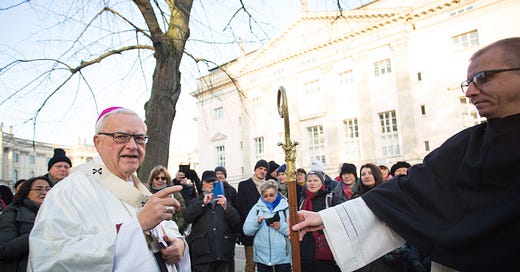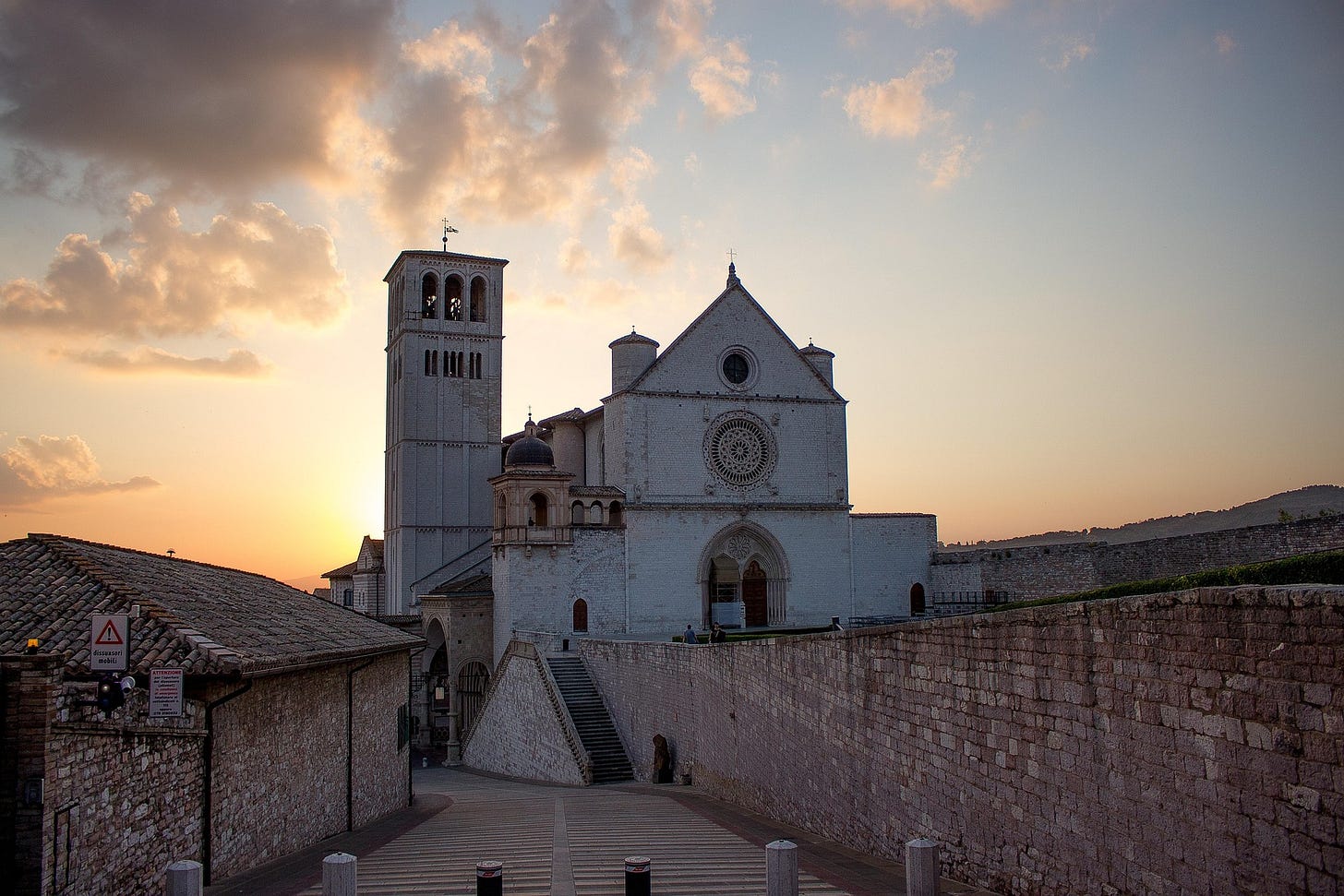Pilgrims of Hope: Embracing the Holy Year and the Journey of Faith
Discover the significance of the Holy Year and receive an invitation to join a deeply personal pilgrimage to Rome along the Franciscan Way.
Dear pilgrims,
In our fast-paced lives, it’s easy to overlook the time and space needed for reflection on our purpose and deeper meaning. We often find ourselves caught up in the demands of daily life, without taking a moment to pause and consider where we are truly headed. The Holy Year offers us such an opportunity – a chance to step back and gain a clearer view of the bigger picture of our lives.
Rediscovering the Holy Year
A Holy Year is a special religious event within the Catholic Church, dedicated to the forgiveness of sins, reconciliation, and spiritual renewal. It invites to lead a more holy life and to deepen their personal faith. The concept finds its roots in the Old Testament’s Jubilee – a time, occurring every fifty years, when debts were forgiven, slaves released, and land restored to its original owners. The Hebrew term Yobel, originally meaning “horn” (used to announce this significant year), underpins this ancient tradition of societal rest and restoration.
The Christian adaptation began in 1300 when Pope Boniface VIII declared the first Holy Year. Although the original plan was for a centennial cycle, the interval was soon reduced to finally 25 years. Since then, pilgrims from around the world have journeyed to Rome to visit the Apostolic Tombs and receive the Pope’s blessing. Historically, eminent figures such as the poet Dante Alighieri or the founder of the Jesuits, Ignatius of Loyola, undertook these pilgrimages, and many notable works of art and architecture, including the Sistine Chapel, were commissioned during these years of celebration.
In 2025, Rome’s Holy Year carries the theme “Pilgrims of Hope,” echoing one of Pope Francis’ central messages and inviting the faithful to renew their spiritual vigour.
The Opening of the Holy Year in Berlin
In Berlin, the Holy Year was inaugurated with a Pontifical Mass on 29 December 2024 at St Hedwig’s Cathedral, under the auspices of Archbishop Dr. Heiner Koch. Pilgrim groups from across the Archdiocese were invited to participate. As a member of the St. James Pilgrim Society of Berlin, I had the privilege of joining this celebration.
At the cathedral, we were greeted with pastries shaped like pilgrim staffs and a warm welcome from the Archbishop himself. Inside the cathedral, we celebrated the Mass together, and afterward, special pilgrim passports – unique to the Archdiocese of Berlin – were distributed. Although Berlin does not have a designated “Holy Door,” it offers three Basilicae minores (St. Hedwig’s Cathedral in Mitte, St. John’s Basilica in Neukölln, and Rosary Basilica in Steglitz) where pilgrims can have their passports stamped. I was profoundly moved by the dedication and effort the Archdiocese has invested in this day and the entire Holy Year, reinforcing the vital role of pilgrimage as both a personal and communal spiritual practice.
For further details on the Holy Year in Berlin, including monthly presentations of “places of hope” and upcoming events, please visit the German website of the Archdiocese. I am also grateful to the Archdiocese for featuring my newsletter and my pilgrimage initiatives among their recommended materials.
The Spiritual Value of Rituals and Pilgrimage
Rituals, traditions, and customs serve as important markers in our lives, inviting us to reflect on what truly matters. Just as we rest on Sundays to recover from the week and honour God through worship, the Holy Year prompts us to reassess our life’s direction. It poses questions such as: Am I still on the right path? Does my spiritual life receive the attention it deserves, or has it been overshadowed by daily obligations?
It is crucial that these rituals are not performed out of mere habit or obligation. Martin Luther famously criticised the notion that a pilgrimage to Rome or the mere act of passing through a holy gate could automatically absolve sins. True spiritual benefit arises when we consciously imbue these traditions with personal meaning, allowing them to transform our inner lives.
An Invitation: Walk the Franciscan Way to Rome With Me
My first visit to Rome in 2021 left an indelible impression on my faith. Staying in a monastery, exploring the ancient catacombs, and embarking on the Seven Churches Pilgrimage including a visit to St. Peter’s Basilica and its museums deeply enriched my spiritual journey. These experiences affirmed my desire to return to Rome, not merely to cross its ancient thresholds in hope of forgiveness, but to engage in an honest, heartfelt quest for a deeper relationship with God and with myself.
This autumn, I have decided to walk the Franciscan Way – a pilgrimage route from Assisi, the birthplace of St. Francis, founder of the Franciscan Order, culminating in Rome. Over the course of 250 kilometres and two weeks, I aim to explore the life and teachings of St. Francis, while to encounter both the physical challenge and the inner transformation that such a journey can offer. I invite you to join me on this adventure of self-discovery and spiritual renewal. I will handle all planning and organisation, and as a trained pilgrimage guide, I will offer spiritual support along the way.
A digital introductory meeting is scheduled for early March, where I will present the journey in greater detail and get to know those interested. If you have any questions or would like to express your interest, please feel free to contact me directly.
Buen Camino,
Alexander





